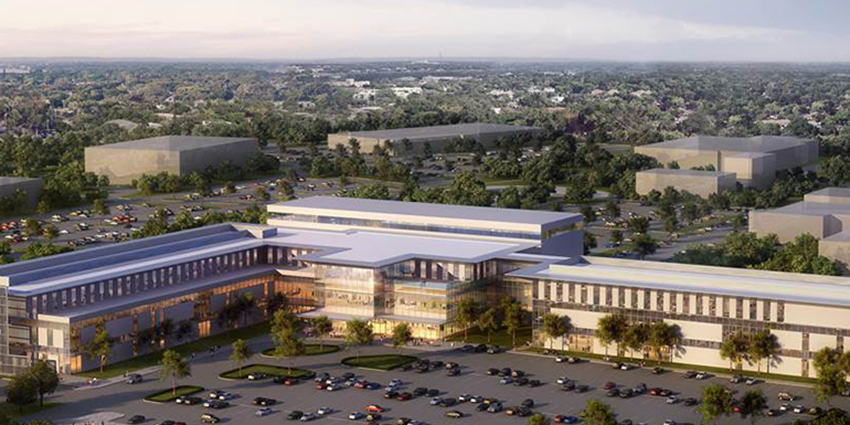The state of Texas has appropriated billions of dollars over the next biennium to address the state’s transportation infrastructure, including $5 million for the construction of the Center for Infrastructure Renewal (CIR), a joint venture between the Texas A&M Engineering Experiment Station (TEES) and the Texas A&M Transportation Institute (TTI).
The facility will house researchers developing advanced and sustainable materials and structural systems to reduce cost and extend infrastructure life, safety, resiliency and durability. It will address problems ranging from aging roadways and bridges, to the U.S. power grid and the nation’s oil, gas, water and wastewater pipeline systems.
“The potential for this facility is immense, in terms of both innovative research opportunities and cost savings for the state of Texas,” said John Sharp, chancellor of The Texas A&M University System.
The $5 million from the state is the first year of debt service to allow $65 million to be used for the construction of CIR. Another $35 million is being raised from the private sector for equipment and program enhancements, according to TEES.
“Our legislators are to be commended for their support of the Center for Infrastructure Renewal. The research and training to be conducted in this facility will address infrastructure challenges, resulting in unprecedented savings to the State of Texas,” said Dr. M. Katherine Banks, vice chancellor and dean of engineering at Texas A&M University and TEES director. “We expect CIR research to address issues such as developing new methods to repair and replace infrastructure at a lower cost, in less time and with new materials that will have a longer lifespan.”
The research, testing and training facility will be located in Research Park, on the Texas A&M campus. Researchers in the facility will also look to develop partnerships with industry to help address Texas’ infrastructure needs. The 200,000-square-foot testing facility will be one of the largest in the world, connecting researchers and experts from the field so that they can work together to find solutions to challenging infrastructure needs.
Read the full TEES news release for more information.

